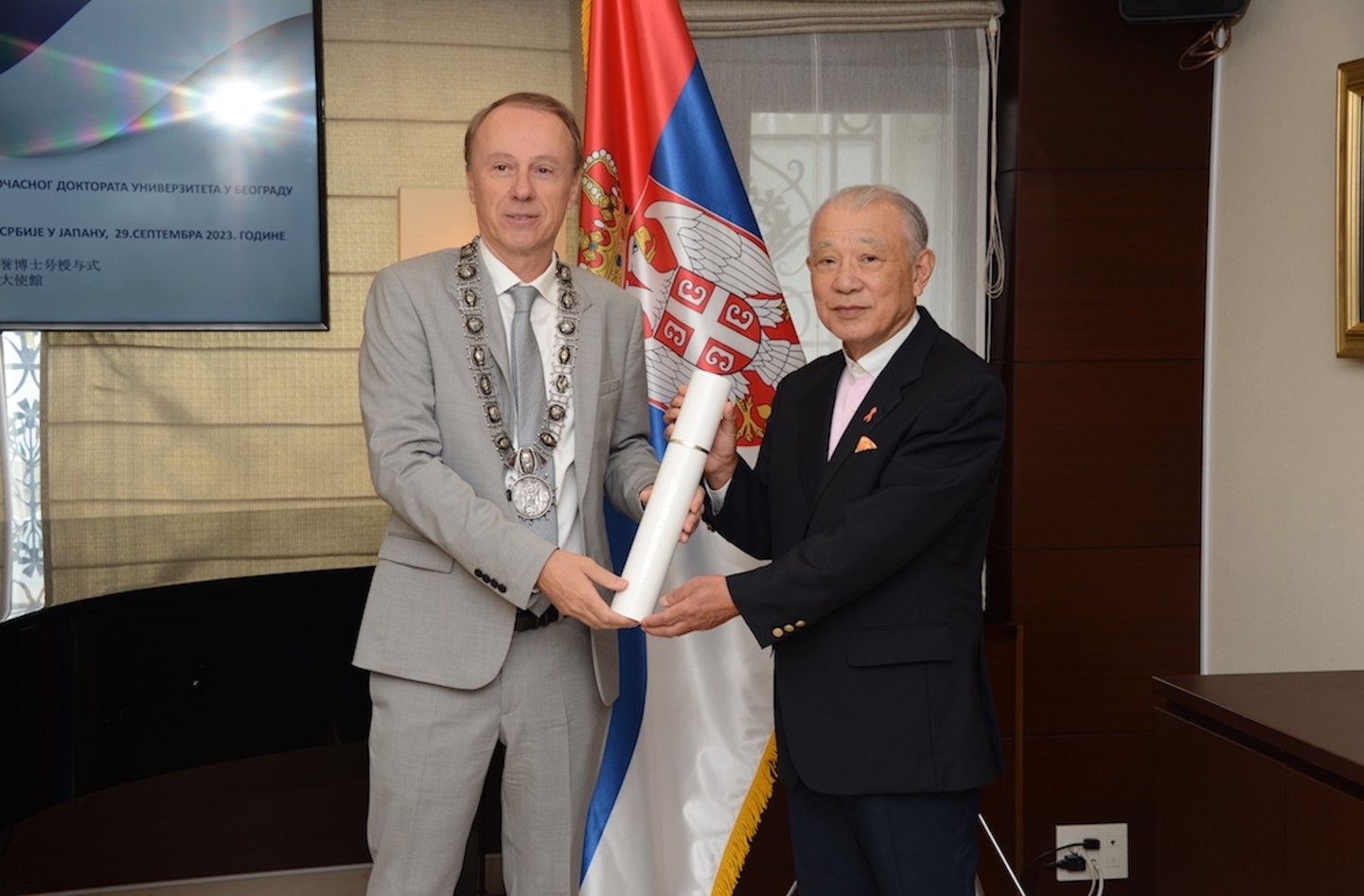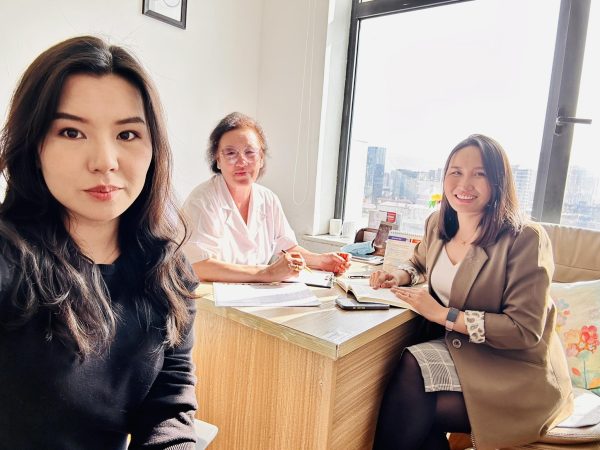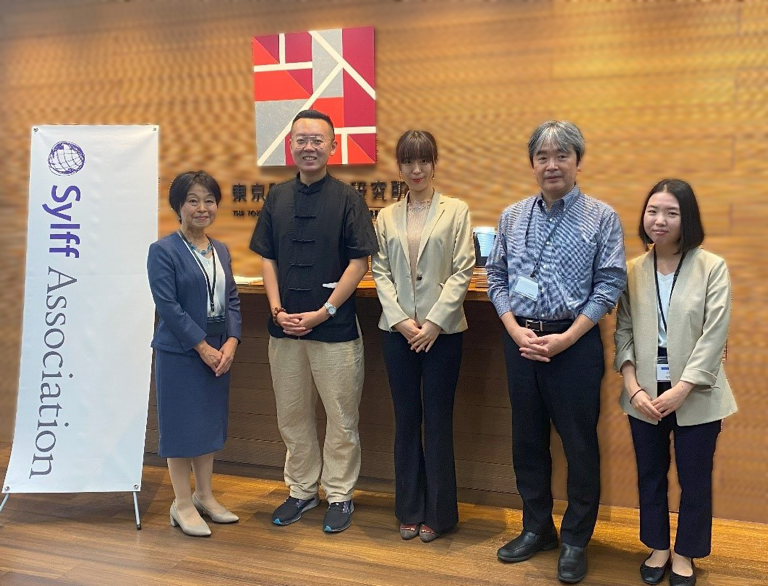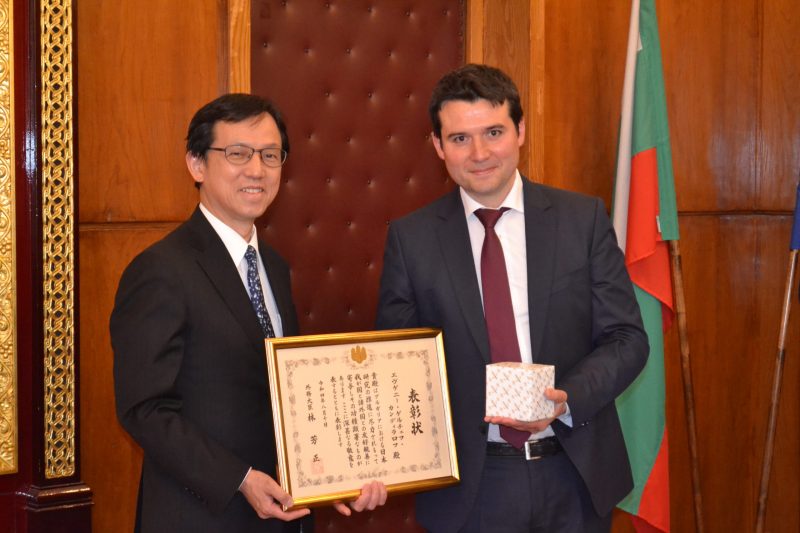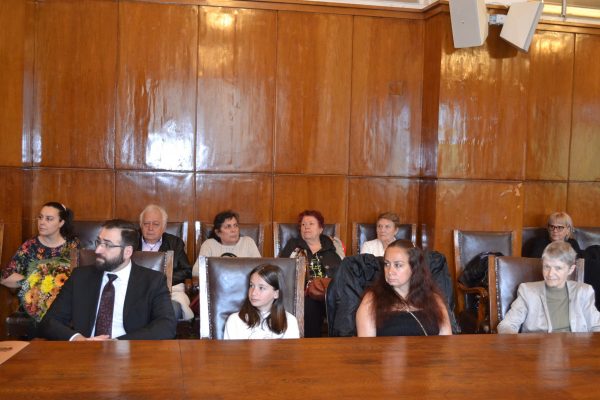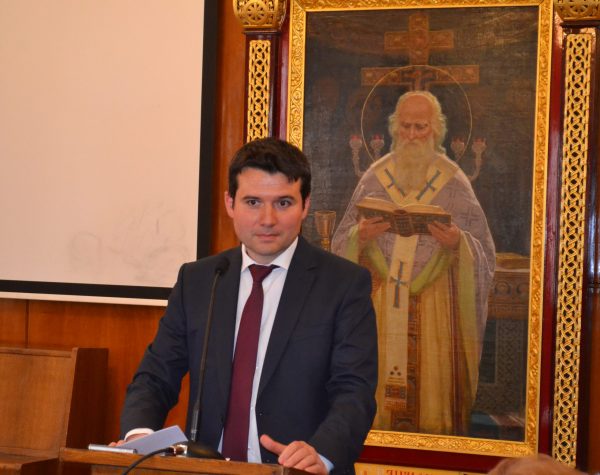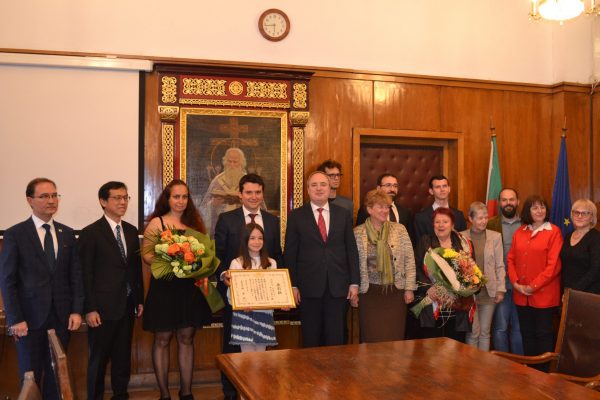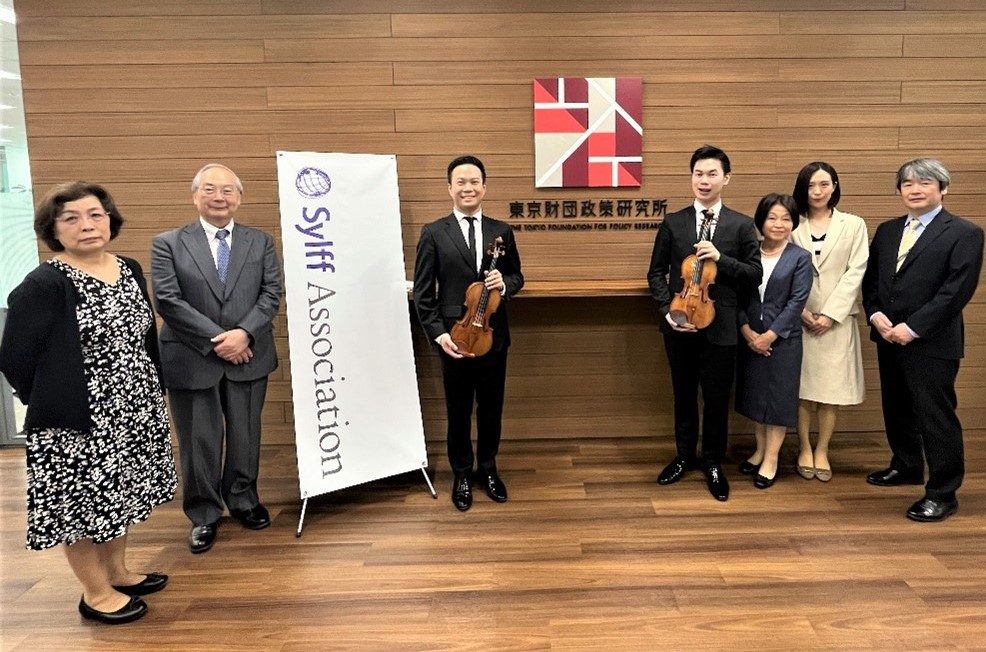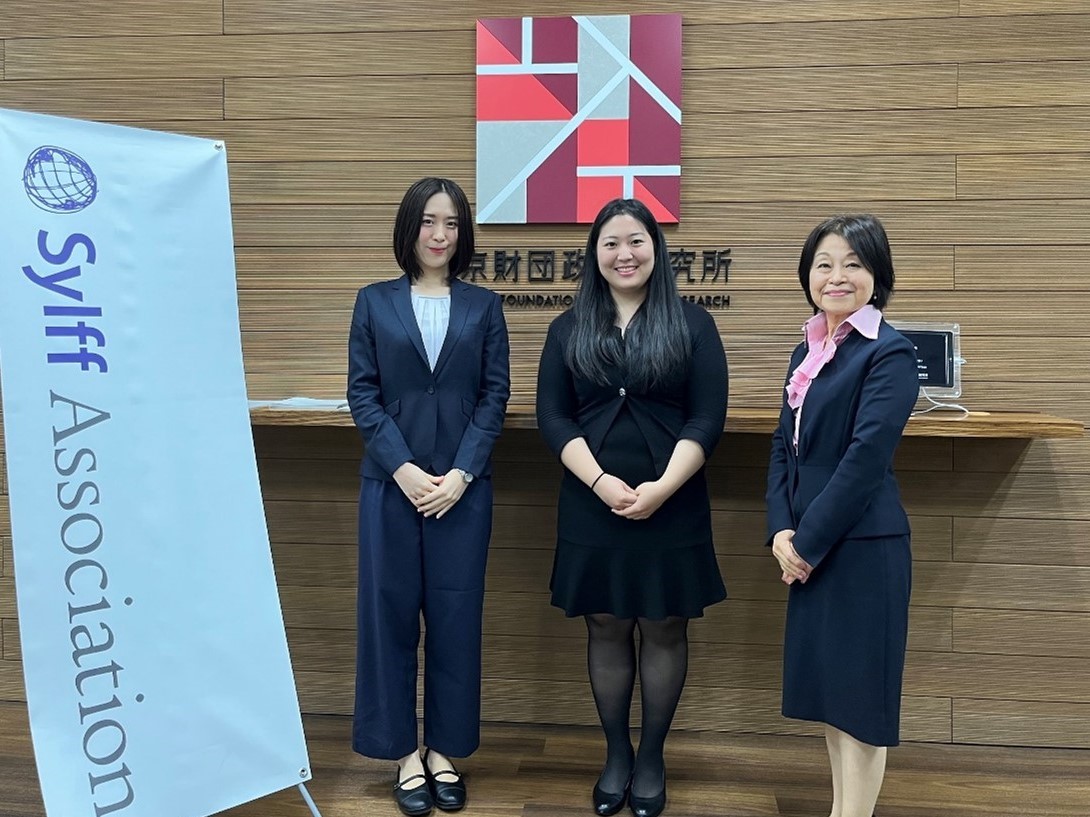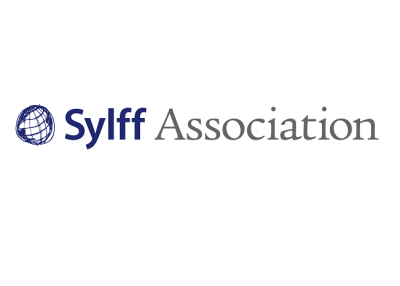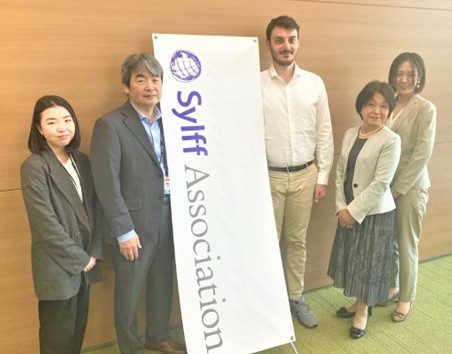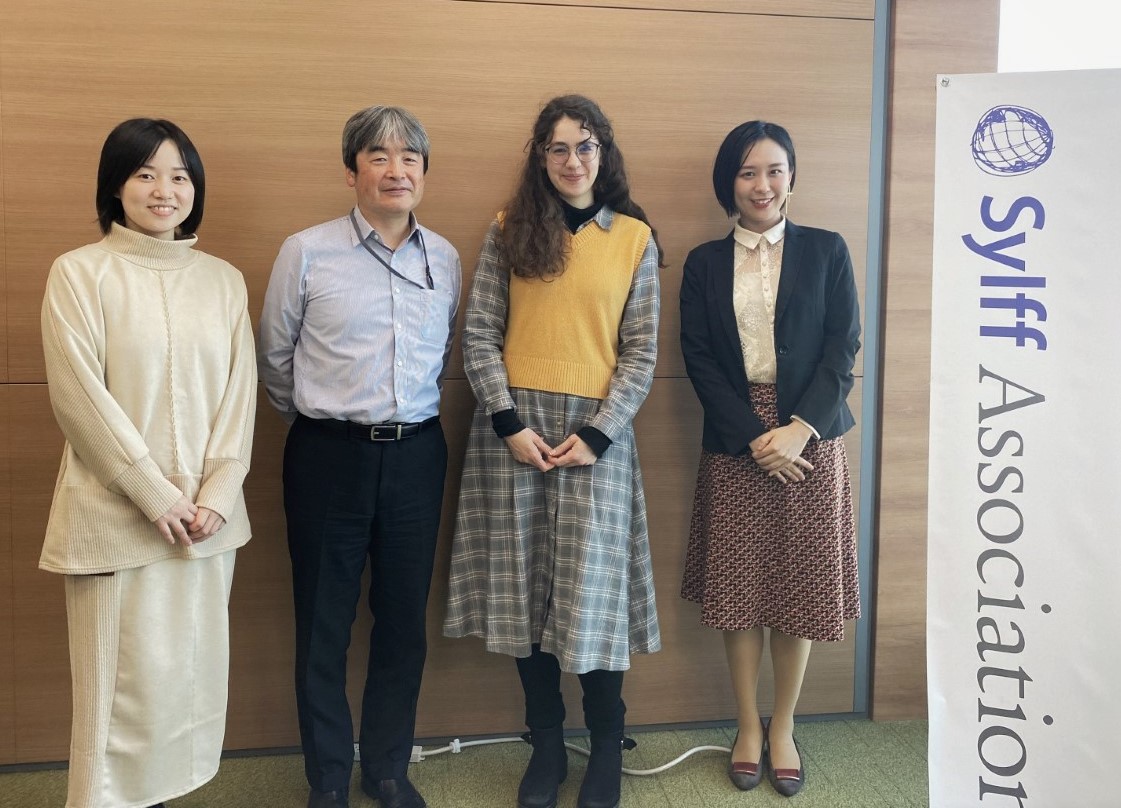Yohei Sasakawa, chairman of the Sylff Association and The Nippon Foundation, was awarded an honorary doctorate by the University of Belgrade. Rector Vladan Djokic conferred a Doctor Honoris Causa at a ceremony held at the Serbian embassy in Tokyo on September 29, 2023.
In her welcome speech, Aleksandra Kovač, Serbian ambassador to Japan, acknowledged the continuous efforts being made by the chairman and The Nippon Foundation to promote academic and cultural exchange between the Republic of Serbia and Japan. In 2013, Sasakawa was awarded the Gold Medal of Merit from the Republic of Serbia for his significant contributions to improving bilateral relations.
Djokic explained that the award recognizes the chairman’s longstanding involvement in nurturing leaders, beginning with the establishment of the Sylff fellowship for doctoral students in the social sciences and humanities at the University of Belgrade in 1988. He also expressed high appreciation for the support provided to fellows facing financial difficulties during the COVID-19 pandemic.
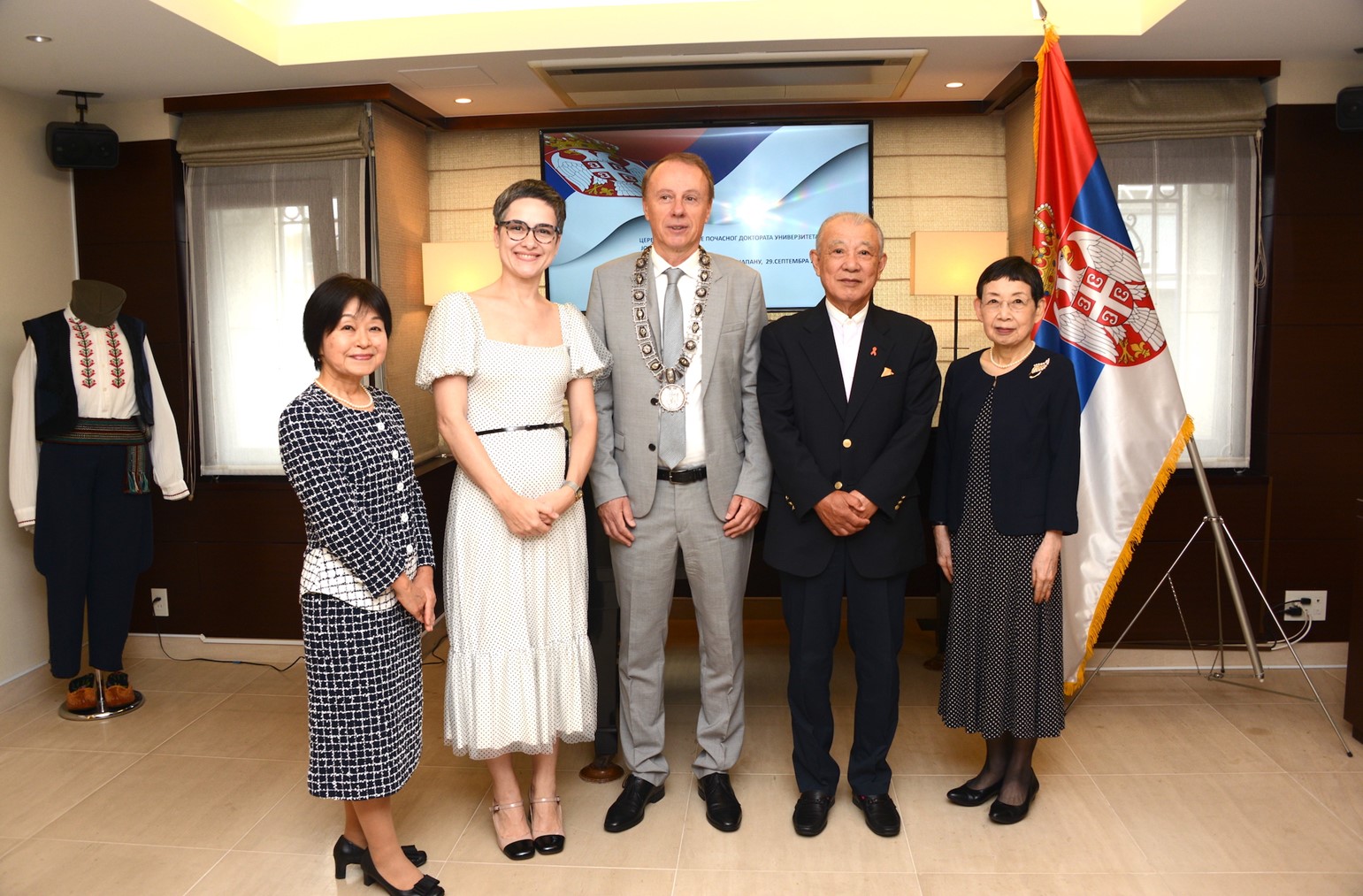
(From left) Executive Director Mari Suzuki of the Tokyo Foundation for Policy Research, Ambassador Kovač, Rector Djokic, Chairman Sasakawa, and President Izumi Kadono of the Tokyo Foundation for Policy Research.
In expressing his gratitude for the honorary doctorate, Sasakawa said, “It’s a great pleasure being able to contribute to deeper ties between Serbia and Japan, and I’ll continue to promote exchange and friendship between the citizens of our two countries. I also hope to develop the Sylff community into a dynamic global network of fellows who are always ready to assist each other.”

